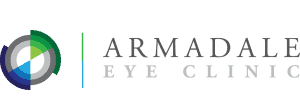Can Cataract Surgery Be Redone For Better Reading & Driving?
Cataract surgery is often a life-changing procedure, restoring clear vision to millions of people worldwide. However, there are cases where the results may not fully meet specific needs, such as reading fine print or driving at night. But can cataract surgery be redone to improve vision for reading or driving?
In this article, we will tap into the limitations and alternatives when the desired outcomes from cataract surgery aren’t achieved, focusing specifically on reading and driving vision.
What Happens During Cataract Surgery?
Cataract surgery is a highly effective treatment designed to regain clear vision by removing the eye’s clouded natural lens and then implanting an artificial intraocular lens (IOL).
This procedure is one of the most successful in modern medicine, with the vast majority of patients experiencing substantial improvement in visual clarity and quality of life.
The Role Of The IOL
The artificial lens implant is a key component of cataract surgery, and the type chosen can greatly influence the outcome.
Different types of IOLs are available, and selecting the right one depends on your specific vision needs and lifestyle preferences.
- Monofocal IOLs: These lenses are typically chosen to optimise distance vision, making them ideal for driving or watching television. However, additional correction may be needed for near-vision tasks like reading or using a smartphone.
- Multifocal IOLs: For those who want to reduce or eliminate the need for glasses at both near and far distances, multifocal lenses can offer a more versatile solution. These lenses are designed to provide clear vision at various focal points, making them ideal for people who seek freedom from glasses for most activities.
- Accommodative IOLs: Accommodative lenses are designed to mimic the eye’s natural ability to focus on objects at different distances. These lenses can shift position within the eye, allowing for improved near, intermediate, and distance vision. For individuals who want a more natural, flexible range of vision without reading glasses or additional correction, accommodative IOLs can be a great option.
Choosing the right IOL is essential to achieving the best possible outcome from your cataract surgery.
Your ophthalmologist will work with you to determine the suitable option based on your vision goals, whether it’s clearer distance vision, enhanced near vision, or a balanced approach to both.
Can Cataract Surgery Be Redone?
The most important thing to understand is that cataract surgery cannot be redone traditionally. It is a permanent solution once the cloudy natural lens is taken out and replaced with an IOL.
However, there are circumstances where further intervention may be necessary to address vision-related issues, such as blurry vision or difficulty reading or driving.
What If I’m Not Satisfied?
While cataract surgery can’t be “redone,” there are alternatives for patients whose vision does not meet their expectations, particularly when it comes to specific tasks like reading or driving.
1. Vision Problems
Occasionally, patients may experience residual blurred or double vision after surgery. This could be due to several factors, including an issue with the placement of the IOL or the development of posterior capsular opacity (PCO).
PCO is a common condition in which the lens capsule, which keeps the IOL in place, gets cloudy over time. This can cause blurred vision but is usually treatable with a quick, non-invasive YAG laser capsulotomy procedure to clear the capsule.
2. Lens Replacement Surgery
Though the cataract surgery itself cannot be repeated, there are cases where the IOL may not be the ideal fit for the patient’s lifestyle. For example, some individuals may find that the IOL they received for distance vision doesn’t provide adequate clarity for reading or close-up tasks.
In these cases, IOL exchange may be an option, replacing the existing lens with one that better addresses the patient’s visual needs, such as a multifocal or accommodating IOL for near and far vision.
Why Is Cataract Surgery Only Done Once Per Eye?
Cataract surgery is typically only done once per eye because the natural lens is permanently removed and replaced with an IOL. While the eye’s natural lens can cloud over time, the IOL is designed to be a permanent implant.
Replacing the IOL isn’t a typical part of cataract surgery, and the decision to do so is based on the patient’s specific needs after evaluating the outcome of the first surgery.
Lifestyle-Specific Solutions For Improved Vision
If you want to improve your vision for specific activities, like reading fine print or driving at night, your cataract surgeon will work closely with you to tailor the best options. Here are some key approaches that may help:
1. Addressing Underlying Eye Health Conditions
While cataract surgery is highly effective for treating cataracts, it doesn’t address all eye conditions. Eye diseases such as macular degeneration or diabetic retinopathy can continue to impact your vision even after your cataract surgery.
If you have any of these conditions, your eye doctor may recommend further treatments to manage symptoms and preserve vision. Ongoing management of these eye health issues can ensure that your vision remains as clear as possible and help you adapt to your new IOL.
2. Optimising Your Post-Surgery Recovery And Care
Proper aftercare is necessary for achieving the best possible results after cataract surgery. Adhering to your eye doctor’s recovery instructions can significantly impact the speed and success of your healing process.
Regular follow-up appointments are essential to track your recovery and detect any potential complications, such as infection or unexpected changes in vision, that may require attention.
These appointments provide the opportunity to discuss your vision goals and fine-tune your treatment if necessary.
Frequently Asked Questions
What are the risks of further treatment after cataract eye surgery?
As with any medical and surgical procedure, there are risks involved in further treatments, such as YAG laser capsulotomy. However, these procedures are generally precise and effective, with a relatively low risk of complications when done by an experienced eye doctor.
How long does it take to recover from cataract eye surgery?
The recovery time of cataract surgery varies from person to person, but most patients begin to notice improved vision within a few days.
Full recovery usually takes a few weeks, and vision continues to stabilise during this period. Following your eye doctor’s post-surgery care instructions and attending follow-up appointments will help ensure optimal recovery.
Can I drive immediately after cataract surgery?
You should be able to resume driving within a few days after cataract surgery, as long as you feel comfortable and your vision is stable.
Your eye doctor will assess your recovery during follow-up visits and advise when it’s fine to return to activities like driving. Following all post-operative instructions and attending regular check-ups is essential to ensure your vision has improved and stabilised.
Conclusion

If you’re considering further treatment, your cataract surgeon will guide you through the process to find the best solution for your needs. With the right approach, you can enjoy improved vision and live life to the fullest without glasses or contact lenses.
If you’ve had cataract surgery and still find your vision isn’t quite where you’d like it to be, you don’t have to settle.
Your sight is too important to leave to guesswork. Call Armadale Eye Clinic at (03) 9070 5753 to book a consultation in Melbourne to discuss your vision, lifestyle, and the personalised solutions that could help you see more clearly and comfortably.
Note: Any surgical or invasive procedure carries risks. Before proceeding, you should seek a second opinion from an appropriately qualified health practitioner.
Sources
Vallie S. What to Know About a Posterior Capsulotomy (YAG Laser) [Internet]. WebMD. 2024 [cited 2025 May 12]. Available from: https://www.webmd.com/eye-health/cataracts/what-to-know-about-posterior-capsulotomy-yag-laser
Hersh E. Can Cataracts Come Back After Surgery? [Internet]. Healthline. 2023 [cited 2025 May 12]. Available from: https://www.healthline.com/health/can-cataracts-come-back
TerHorst C. Factors to Consider in Choosing an IOL for Cataract Surgery [Internet]. American Academy of Ophthalmology. 2025 [cited 2025 May 12]. Available from: https://www.aao.org/eye-health/tips-prevention/best-artificial-lens-implant-iol-cataract-surgery









 However, in addition to this, not everyone is bothered by the
However, in addition to this, not everyone is bothered by the